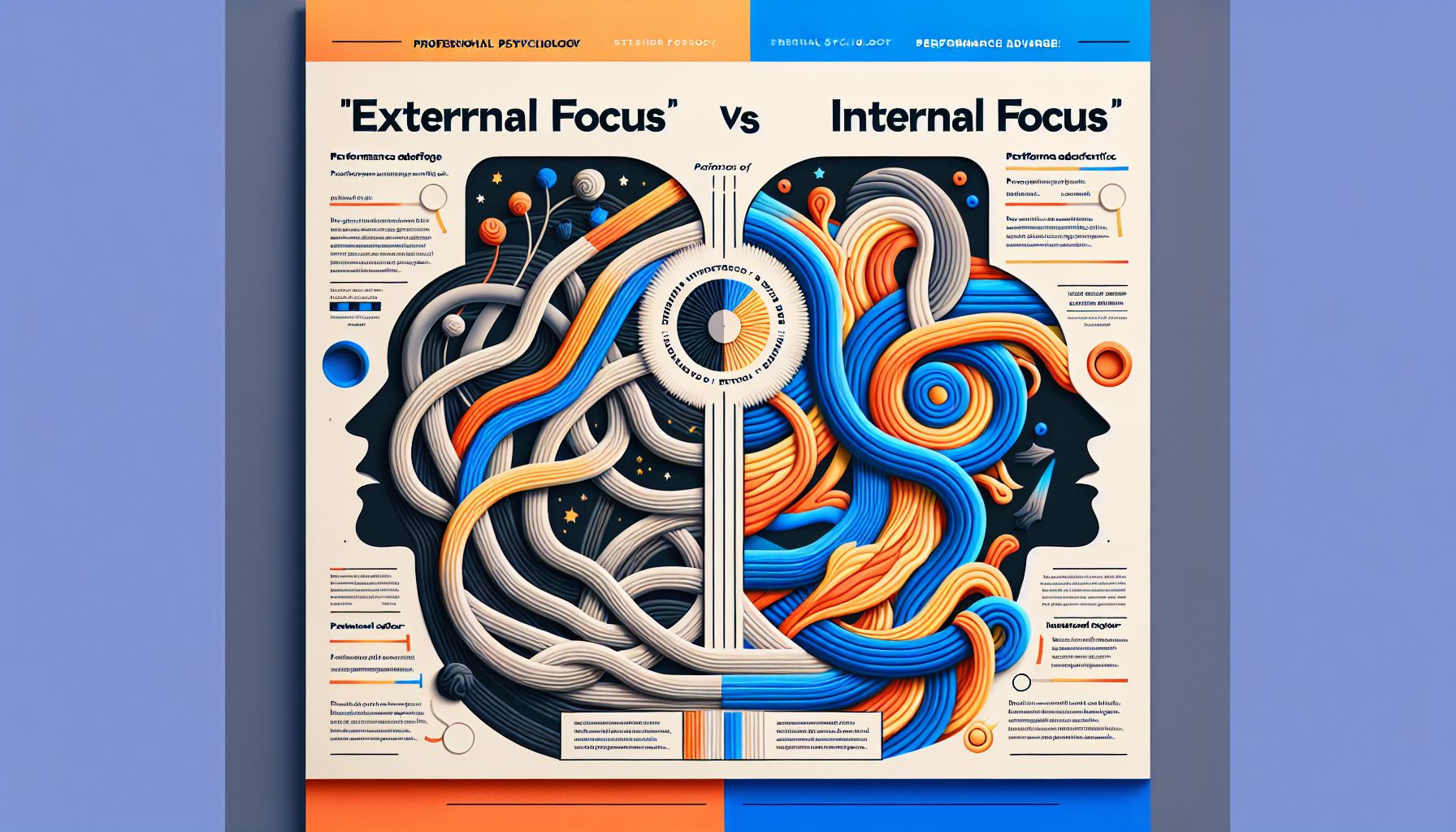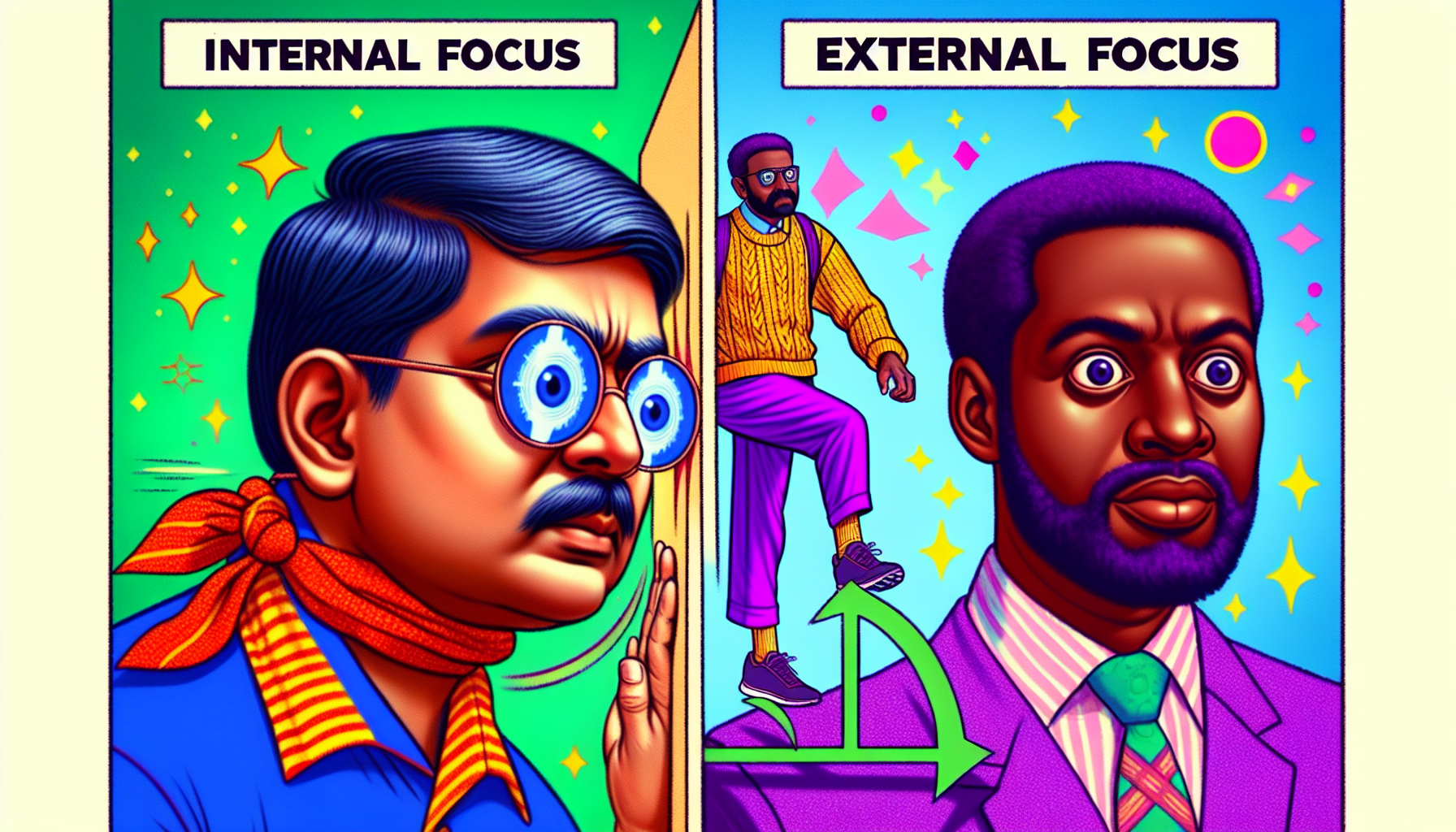I was adjusting the brightness on my laptop the other day, an act so mundane yet it somehow got me thinking about focus. Not the digital kind, but the kind where you're trying to nail a free throw or write a blog post without wandering off into the internet's endless corridors. Odd connection, maybe, but that's where the mind went. It led me down this rabbit hole about how we focus, specifically on the difference between internal and external focus, and I stumbled upon this idea called the constrained action hypothesis. It sounds fancy, doesn't it? But I promise, it's quite a fascinating concept once you dive into it, even if I'm still trying to wrap my head around all its nuances.

The constrained action hypothesis, in a nutshell, suggests that focusing on the movement's outcome (external focus) rather than the movement itself (internal focus) can actually enhance performance. Wulf, McNevin, and Shea (2001) conducted a study that showed participants who focused on the effects of their movements (external focus) performed better at tasks than those who concentrated on the movements themselves (internal focus). I don't remember the exact percentages, but the difference was significant enough to catch my eye. And yet, as clear as those results seemed, I couldn't help but wonder about the specifics. What kinds of tasks were they? How significant is significant?
This line of inquiry brought me to another study, this time by Zachry, Wulf, Mercer, and Bezodis (2005), which further supported the constrained action hypothesis by showing improved jumping performance in athletes who concentrated on external factors. Again, fascinating, right? But it got me thinking about the contexts of these studies. Athletes, under controlled conditions, focusing on jumping higher or throwing further. It makes me question, how does this apply to everyday tasks? Can shifting focus really improve something as mundane as typing an email or cooking dinner?
And then there's the whole issue of sample sizes and contexts. These studies, while compelling, often involve relatively small groups of people in very specific settings. Does that mean the findings are universally applicable? I'm not sure. It seems like a lot of research in psychology faces this challenge. You find something that appears to be true under certain conditions but figuring out how far you can generalize that truth is another matter entirely.
Despite these uncertainties, the practical implications of the constrained action hypothesis are too intriguing to dismiss outright. If focusing externally can indeed enhance performance, how can we apply this knowledge to improve our daily lives? Maybe it's about setting goals that are more about the impact of our actions rather than the actions themselves. For instance, instead of obsessing over the mechanics of a presentation (internal focus), concentrating on engaging the audience and conveying the message effectively (external focus) could potentially lead to a more compelling performance.


But then, how do we train our minds to adopt this external focus? It's not as if you can just flip a switch and suddenly start thinking differently. Or maybe you can, and I just haven't figured it out yet. It makes me wonder about the role of habit and mindset, and how much of this is within our control versus being shaped by our environment and experiences.
As I circle back to my original thought about adjusting laptop brightness (see, I told you it was a mundane start), I can't help but relate it to this idea of focus. Maybe adjusting our focus, like the brightness on a screen, can enhance our performance in ways we haven't fully appreciated. Or maybe I'm just trying to find a deeper meaning in everyday actions. Either way, the constrained action hypothesis has given me a lot to think about, even if I'm not entirely sure where all these thoughts lead.
In the end, I guess the real takeaway here is that our understanding of focus, performance, and how we can optimize the two is still evolving. The constrained action hypothesis offers a compelling framework, but it's clear there's much more to explore. And while I may not have all the answers (or any, really), I'm okay with that. After all, it's the questions that keep us moving forward, searching for understanding in the endless complexity of human behavior.